[PMID 19343543] Association analysis of TNFRSF1B polymorphisms with type 2 diabetes and its related traits in North India.
[
PMID 19421420] Tumor Necrosis Factor Receptor Superfamily, Member 1B Haplotypes Increase or Decrease the Risk of Inflammatory Bowel Diseases in a New Zealand Caucasian Population
[
PMID 19684152] Cigarette smoking, STAT4 and TNFRSF1B polymorphisms, and systemic lupus erythematosus in a Japanese population
[
PMID 21995493] TNFRSF1B +676 T>G polymorphism predicts survival of non-Small cell lung cancer patients treated with chemoradiotherapy
[
PMID 15113403] Current limitations of SNP data from the public domain for studies of complex disorders: a test for ten candidate genes for obesity and osteoporosis.
[
PMID 16109524] Preparation and analysis of cSNP chip on hepatocellular carcinoma-related genes.
[
PMID 16380915] Replication of putative candidate-gene associations with rheumatoid arthritis in >4,000 samples from North America and Sweden: association of susceptibility with PTPN22, CTLA4, and PADI4.
[
PMID 17705862] Optimization of candidate-gene SNP-genotyping by flexible oligonucleotide microarrays; analyzing variations in immune regulator genes of hay-fever samples.
[
PMID 18248655] Genetic polymorphisms of tumour necrosis factor receptor superfamily 1A and 1B affect responses to infliximab in Japanese patients with Crohn’s disease.
[
PMID 18385279] The tumour necrosis factor receptor superfamily member 1b 676T>G polymorphism in relation to response to infliximab and adalimumab treatment and disease severity in rheumatoid arthritis.
[
PMID 18466472] Constructing gene association networks for rheumatoid arthritis using the backward genotype-trait association (BGTA) algorithm.
[
PMID 18466513] Evaluating gene x gene and gene x smoking interaction in rheumatoid arthritis using candidate genes in GAW15.
[
PMID 18603647] Functional genetic polymorphisms and female reproductive disorders: Part I: Polycystic ovary syndrome and ovarian response.
[
PMID 18805939] Functional genetic polymorphisms and female reproductive disorders: part II–endometriosis.
[
PMID 19401444] Body iron stores and glucose intolerance in premenopausal women: role of hyperandrogenism, insulin resistance, and genomic variants related to inflammation, oxidative stress, and iron metabolism.
[
PMID 20007930] A functional haplotype in the 3’untranslated region of TNFRSF1B is associated with tuberculosis in two African populations.
[
PMID 20018049] Evaluation of an optimal receiver operating characteristic procedure.
[
PMID 20646319] TNFRSF1B A1466G genotype is predictive of clinical efficacy after treatment with a definitive 5-fluorouracil/cisplatin-based chemoradiotherapy in Japanese patients with esophageal squamous cell carcinoma.
[
PMID 20811626] Genetic variants in inflammation-related genes are associated with radiation-induced toxicity following treatment for non-small cell lung cancer.
[
PMID 22860894] Genetic polymorphisms of tumour necrosis factor receptor superfamily 1b and fas ligand are associated with clinical efficacy and/or acute severe infusion reactions to infliximab in Crohn’s disease
[
PMID 23799986] Maternal tumor necrosis factor receptor 2 gene variants associated with pre-eclampsia in Tunisian women
[
PMID 22921902] The methionine 196 arginine polymorphism of the TNF receptor 2 gene (TNFRSF1B) is not associated with worse outcomes in heart failure.
[
PMID 23238918] Genome-wide pathway analysis of a genome-wide association study on multiple sclerosis.
[
PMID 25010932] Association of TNF-α, TNFRSF1A and TNFRSF1B Gene Polymorphisms with the Risk of Sporadic Breast Cancer in Northeast Chinese Han Women
[
PMID 25850964] Genetic variants within the TNFRSF1B gene and susceptibility to rheumatoid arthritis and response to anti-TNF drugs: a multicenter study
[
PMID 26071216] The tumor necrosis factor receptor superfamily member 1B polymorphisms predict response to anti-TNF therapy in patients with autoimmune disease: A meta-analysis.
